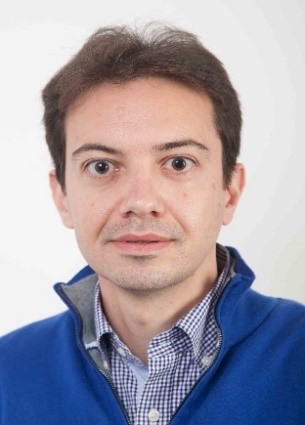Title
Immersive media and accessibility: Hand in hand to the future
Abstract
Advances in immersive media can provide relevant benefits to our society. The future looks promising with the development of new communication technologies, formats and hardware, together with their wide applicability areas. However, a fundamental aspect remains unexplored in this media landscape evolution: accessibility. A lack of accessibility hinders the interaction and immersion with virtual reality (VR) experiences to many consumers, becoming a barrier for global e-inclusion and equality of opportunities. Making immersive media accessible then becomes a priority and thus the research topic covered in this article. After reviewing the societal impact and regulatory framework, the article identifies current advances, limitations and challenges in this field. Then, it presents technological solutions and insights from initiatives targeted at achieving a seamless presentation of access services (subtitling, audio description and sign language) with VR360 content. Although these contributions are primarily conceived for broadcast services, their applicability spans other sectors and can pave the way for next-generation accessible VR experiences with six Degrees-of-Freedom (6DoF).
Keywords
360° video accessibility, immersive media, subtitling, virtual reality
Authors
 Mario Montagud
Mario Montagud
i2CAT Foundation, Universitat Autònoma de Barcelona, Spain
Mario Montagud was born in Montitxelvo (Spain). He received a BsC in Telecommunications Engineering in 2011, an MsC degree in “Telecommunication Technologies, Systems and Networks” in 2012 and a PhD degree in Telecommunications (Cum Laude Distinction) in 2015, all of them at the Polytechnic University of Valencia (UPV). During his PhD degree and after completing it, he did 3 research stays (accumulating 18 months) at CWI (The National Research Institute for Mathematics and Computer Science in the Netherlands). He also has experience as a postdoc researcher at UPV (Valencia). He is currently a postdoc researcher at the University of Valencia (UV) and i2CAT Foundation (Barcelona). His topics of interest include Computer Networks, Synchronization, Interactive and Immersive Media, HCI (Human-Computer Interaction) and QoE (Quality of Experience). Mario is (co-)author of over 90 scientific and teaching publications, and has contributed to standardization (IETF, W3C, ISO...). He is member of the Technical and Organizing Committee of International conferences and workshops, and member of the Editorial Board of international journals. He is lead editor of “MediaSync: Handbook on Multimedia Synchronization” (Springer, 2018). He is currently leading a national project and is involved in four EU H2020 projects, being Work Packager leader in two of them (ImAc and VR-Together).

Pilar Orero
Universitat Autònoma de Barcelona, Spain
Dr Pilar Orero, PhD (UMIST, UK) works at Universitat Autònoma de Barcelona (Spain). She is a member of the research group TransMedia Catalonia
http://grupsderecerca.uab.cat/transmedia/. She has written and edited many books on Media Accessibility
http://gent.uab.cat/pilarorero. Leader and participant on numerous EU funded projects such as HBB4ALL
http://pagines.uab.cat/hbb4all/, ACT
http://pagines.uab.cat/act/, UMAQ (Understanding Quality Media Accessibility)
http://pagines.uab.cat/umaq/, REBUILD (
https://www.rebuildeurope.eu/en/rassegna-stampa.aspx), HELIOS (
https://helios-h2020.eu) 2018-2021, TRACTION (
https://www.traction-project.eu) and SOCLOSE (
https://so-close.eu) and the three ERASMUS+ EASIT
http://pagines.uab.cat/easit/, LTA
https://ltaproject.eu and IMPACT (
https://impact-access.eu). She is co-founder of the Media Accessibility Platform MAP
http://www.mapaccess.org. She works in standardization and participates in the ITU IRG-AVA - Intersector Rapporteur Group Audiovisual Media Accessibility
http://www.itu.int/en/irg/ava/Pages/default.aspx. Dr Orero is a member of the working group ISO/IEC JTC 1/SC 35, the Spanish UNE working group on accessibility, and also of ANEC Accessibility working group (
www.anec.eu).

Sergi Fernández
i2CAT Foundation,Spain
Sergi Fernández is a computer scientist and holds a Master in Artificial Intelligence by the Universitat Politècnica de Catalunya (Spain) since July 2007. Since May 2008, he has given support to the coordination of i2CAT’s Media & Internet Unit and led i2CAT’s involvement in different national and European projects. Since July 2012, he is the director of the Media & Internet Unit of i2CAT. Sergi has co-authored several articles in the field of Interactive and Immersive TV, being especially active in the recent past. He has coordinated different European FP7 projects like TV-Ring (2013-2016) and ImmersiaTV (2016-2018), and he is currently Project Coordinator of two H2020 projects in the field of Interactive and Immersive TV: VR-Together (2017-2020), and ImAc (2017-2020).